Instilling a sense of empathy and responsibility in children through the compassionate treatment of animals forms an essential foundation. It’s crucial to underscore that animals share our capacity to experience pain and emotions, rendering any form of harm or cruelty unjustifiable.
Parental exemplification of kind and tender conduct serves as a paramount influence, guiding children in the art of gentle petting and attentive caregiving. Regularly reinforcing the notion that animals are sentient beings, not mere playthings, plants the seeds for an enduring bond and reverence toward the animal kingdom.
In a recent online post, a Redditor recounted an incident involving their nephew and a cat, pondering whether it was appropriate to communicate these principles to their sister. The OP’s sister frequently visits, accompanied by her three-year-old son.
During one such visit, the young boy employed a spoon to strike the OP’s elderly cat—a cherished companion of 16 years who also happened to be blind. Swiftly rising from their computer, the OP gently intervened, safeguarding their feline friend from harm.
This occurrence prompted tears from the child and ignited a dispute involving the OP, their mother, and their sister. In a state of exasperation, the OP voiced their concerns, criticizing the absence of defined boundaries and the indulgence of the boy’s conduct.
However, this incident wasn’t isolated. The nephew recurrently engages in troubling behavior towards the cat, ranging from kicking to pulling its fur.
The family’s response consistently attributes these actions to the young age of the child.
The OP raises the question:

The OP explained what happened and their instinctive reaction:
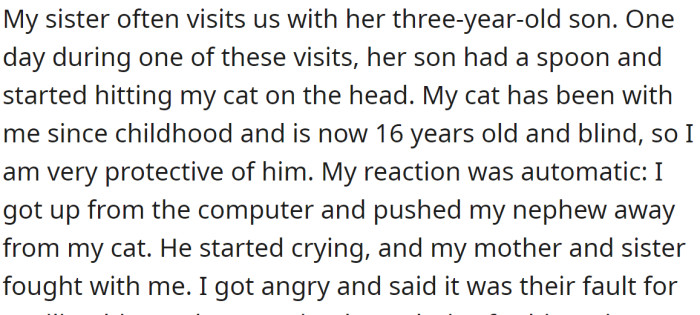
But it started an argument between the family, so they wanted to know if they were in the wrong:

“Children NEED to learn how to handle and be around animals and learn boundaries”
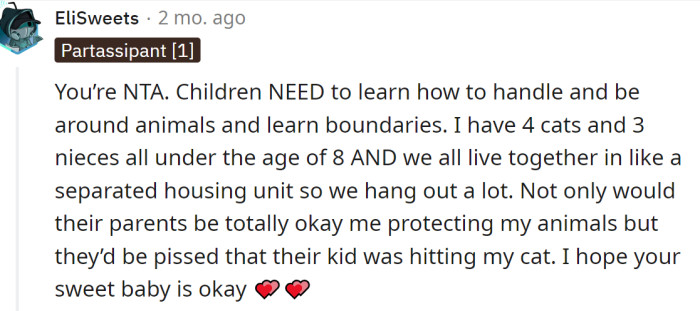
The OP needs to protect their cat better and keep it away from the nephew:
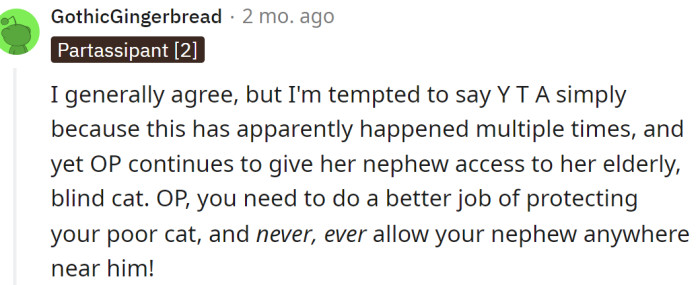
“Show nephew how to nicely pet cat.”
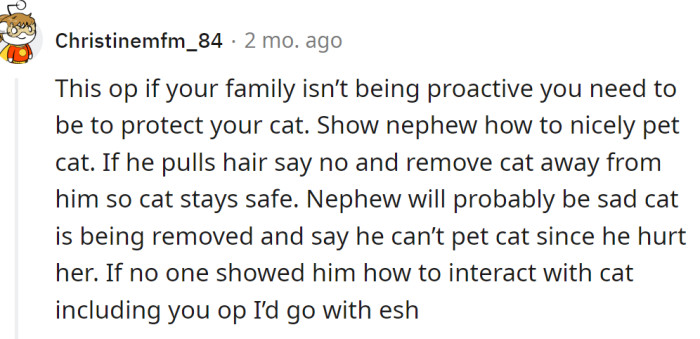
“I hope your cat is ok.”
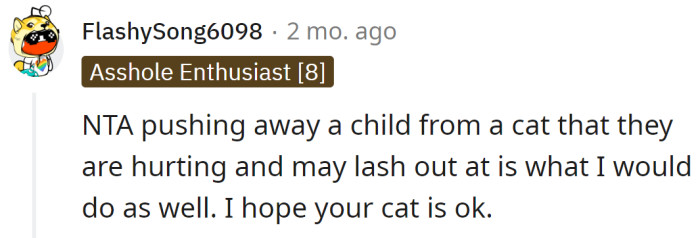
“They should never have that kid around animals until he learns respect”
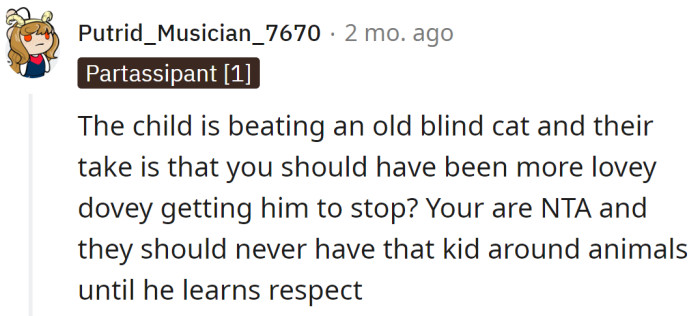
The fact that he is just a child says that he needs to be taught how to behave towards animals:
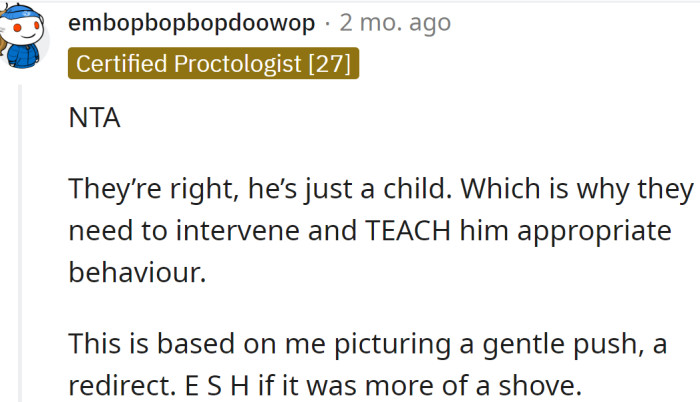
“It isn’t OPs responsibility to parent that brat.”
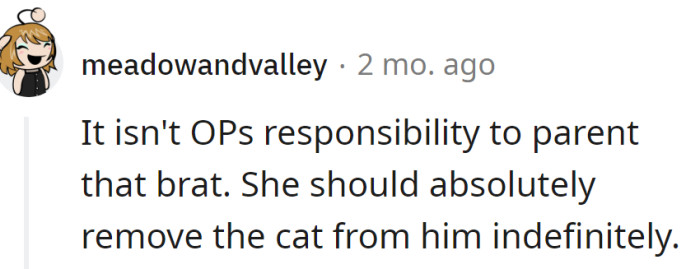
The child is old enough to learn how to take care of animals

The OP’s swift action to shield their cat was entirely warranted. Animals, especially those who are vulnerable due to age or disabilities, deserve safeguarding from potentially harmful interactions.
The pattern of mistreatment incidents highlights a worrisome lack of understanding and respect for animals in the OP’s nephew. The OP’s proactive stance in setting boundaries and stepping in when the cat was distressed showcases commendable pet ownership and care.
The OP’s concerns raised to the child’s parents regarding their approach—or lack thereof—to disciplining their son underscore a significant issue. It’s imperative to instill empathy and respect for animals in children from a young age.
This pivotal educational responsibility primarily rests with the parents or caregivers.

